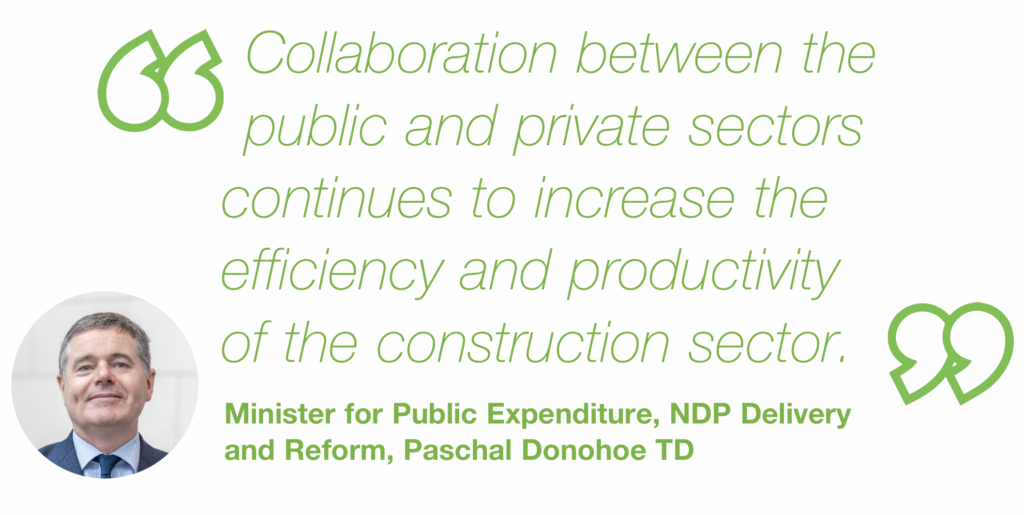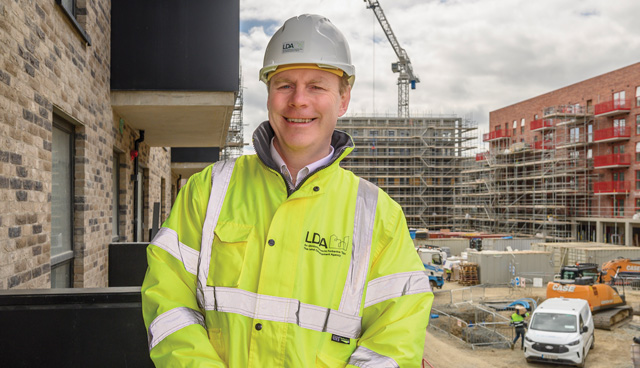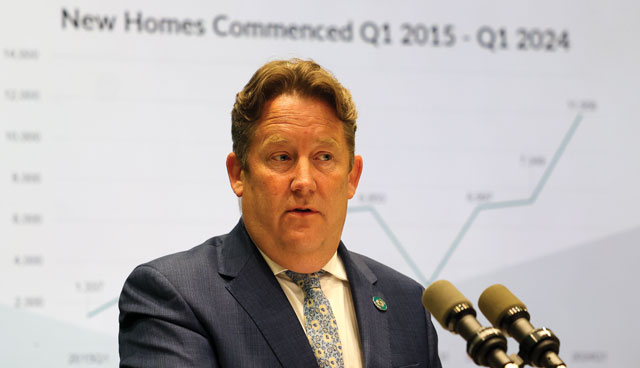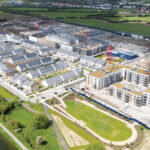
Seven Mills: Building a new town
3rd July 2024
Climate Action Plan 2024 and housing
3rd July 2024Build 2024: ‘Reason to be positive’ on construction progress
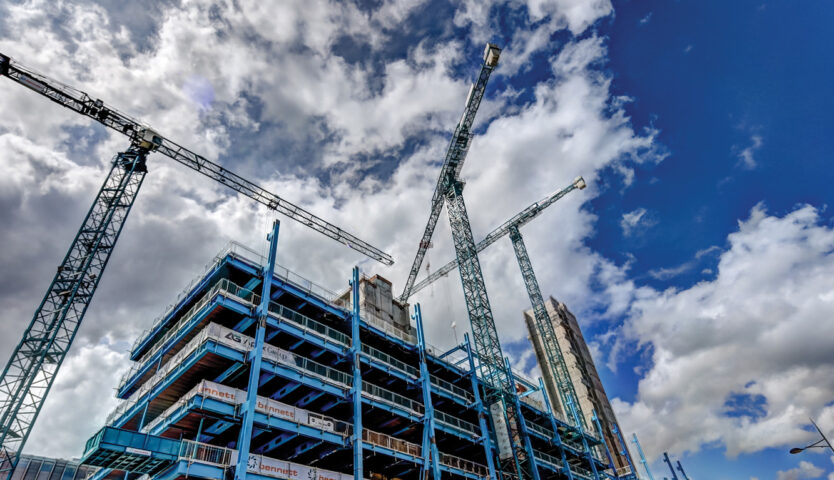
Although the construction sector is dealing with supply challenges arising from the Covid-19 pandemic and the war in Ukraine, the Build 2024 report asserts that there is “reason to be positive” in terms of the initiatives which aim to increase the efficiency and productivity of the sector.
The Build 2024 report, published by the Department of Public Expenditure, NDP Delivery and Reform (DPENDR) in June 2024, outlines how the construction sector has faced significant challenges over recent years including Covid-19 restrictions, inflationary pressures, and supply chain disruptions.
However, the report asserts that there is reason to be positive due to initiatives being undertaken by the public and private sectors such as the adoption of modern methods of construction (MMC), the introduction of public sector building information modelling (BIM) mandate, and reforms to the planning system.
On investment and funding in the construction sector, the report states that gross fixed capital formation (GFCF) – which captures both public and private investment in building and construction (B&C) in areas such as housing, commercial buildings, civil engineering and public infrastructure – increased by circa 6 per cent to €31.5 billion in 2023 relative to 2022. In addition, forecasts anticipate GFCF in B&C of €36 billion in 2024 with further growth anticipated in the years ahead as investment increases.
On implementation of the National Development Plan, the report states that a total of 132 projects have received funding of €1.7 billion between 2018 and 2023 under the URDF and 245 projects received funding totalling €577 million between 2018 and 2024 under the RRDF.
On planning and delivery, the report states that there were 32,801 residential commencement notices in 2023, an increase of 5,844 (22 per cent) relative to 2022. Similarly, the number of planning permissions granted for civil engineering projects increased by 14 per cent to 2,529 in 2023 relative to 2022.
However, it is noteworthy that Dublin has seen a significant drop in the proportion of planning permissions for apartments; falling from 94 per cent of all permissions in 2021 to 74 per cent in 2023. Nonetheless, apartments now account for a substantial share of dwelling completions across the State, rising by a factor of four from 9 per cent of completions in 2018 to 36 per cent in 2023.
The value of exports by construction companies grew by one-fifth in 2022 relative to 2021 to €3.76 billion, with market analysis suggesting that demand for commercial office spaces is slowing down and will continue to decrease over the next two to three years. There is an opportunity for some of the workforce in commercial property to transfer to residential construction during this period, particularly apartments. There is also potential to convert some vacant office buildings into residential units.
Planning and costs
The revised National Planning Framework (NPF), due to be published in Q3 2024 will consider a projected one million increase in the population of the State by 2040. Census 2022 recorded over 5.1 million people living in the State.
In terms of planning and wider reforms to housing delivery, the report outlines that the Government will consider the recommendations and findings of The Housing Commission. The Housing Commission’s final report, published by the Department of Housing, Local Government and Heritage (DHLGH) in May 2024 makes 83 recommendations and finds an underlying housing deficit of up to 256,000 homes.
In terms of legislation, the Planning and Development Bill is due to be published in autumn 2024, before the dissolution of the 33rd Dáil. While the report states that the Bill is “unlikely to be a panacea for all of the issues with housing and infrastructure delivery”, it adds that the Bill “aims to reform the plan-making process to encourage community involvement at the drafting stage of City/County Development Plans and reform the judicial review process, amongst other measures”.
On costs related to the construction and built environment sector, the report outlines how, in the 12 months to Q1 2024, the wholesale price index (WPI) for building and construction (B&C) materials decreased by 1 per cent.
“The WPI for electricity and energy products has decreased by 77 per cent and 71 per cent respectively from Q2 2022 (peak) relative to Q1 2024. This follows three years of significant increases in the cost of energy, electricity and materials which made some projects unviable,” the report states.
Following the publication of the Residential Construction Cost Study Report in May 2023, the report states that DHLGH is currently carrying out an overall development cost report which incorporates ‘hard’ construction costs and ‘soft’ costs such as fees, land, and finance. This research is projected to be completed in 2024 and contribute to further initiatives to standardise dwelling types, specifications and scope.
Publishing the report, Minister Paschal Donohoe TD said: “Build 2024 shows that collaboration between the public and private sectors continues to increase the efficiency and productivity of the construction sector.
“It is vital to maintain the existing momentum and focus on measures that can assist in removing bottlenecks to delivering on the priorities outlined in the National Development Plan (NDP).”

